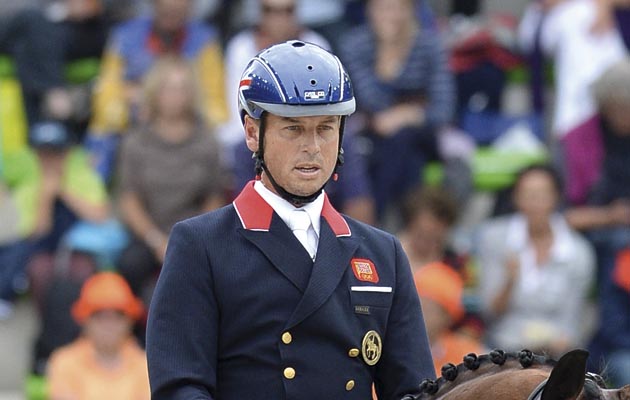Day two in the Global Dressage Forum house and we kicked off hearing from a former gymnast and commentator on Olympic gymnastics and ice-skating. Why? To see what we, dressage, could learn from these sports’ respective judging systems.
In men’s gymnastics there are a total of 63 judges, which makes our five seem rather pathetic. There are several judges marking different aspects of each performance — one judging movements, one execution, and so on.
What’s more, the top and bottom marks are always deducted, to stop any impartial judges getting away with it. And if a judge is too generous to their home nation three times, they are removed… All very interesting.
Sadly, the dressage judges seemed too feel these ideas wouldn’t work in our sport. *Sigh* They’re open to new ideas, just not these ones in particular.
Rider psychology
Sports psychologist Rico Schuijers then had us all studying a Cheerio for two minutes. I found this hard — apparently I have concentration issues.
We then had to try and identify our Cheerio amongst a pile of them. Of course everyone else found this easier than me — should have studied the damn breakfast nugget harder. The Cheerio I came back with was definitely porkier than the one I put in.
This is one of the mental skills Rico teachers the Dutch team, you have to learn as a rider to focus on one thing, looking beyond the obvious, “beyond the boredom”, at the details and really getting the most out of the exercise. “We have unlearned this ability to focus really well in our society”, says Rico. No kidding.
Mind and body
Having sorted out the rider’s heads, we moved on to their bodies and British team physio Andrew Thomas talked about the work he did with Emma Hindle — best of the British in 7th at the 2008 Olympics — in the build up to the Games.
Andrew looks at rider weaknesses and suggests exercises to strength those areas (for an insight into Andy’s techniques don’t miss week three, 27 November, of H&H’s autumn training series). With Emma, he had to fast track 18 months-worth of work in to 6 weeks. The day after the final British selection trial, Emma rang team captain Richard Davison to say doctors had found a large cyst that needed to be removed immediately and she would not be able to ride again within the time frame.
Knowing Emma’s temperament, toughness and determination, Richard said she would still go to Hong Kong. And so Andrew taught Emma to use muscles she didn’t know existed in order to ride without pain, and she credits both him and Richard for her success in Hong Kong.
“They’re just really good people”, she gushed. Seriously, a Brit, showing emotion in front of at least 350 people — was a wonderful thing.
Don’t miss H&H full report on all the demonstrations and debate from this year’s Global Dressage Forum in next week’s magazine (6 November, ’08)



